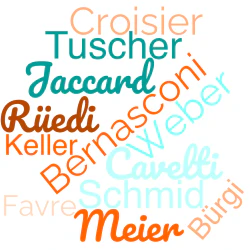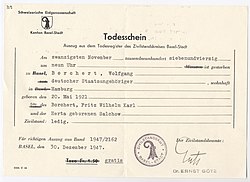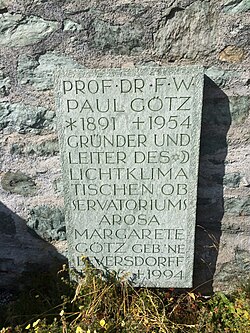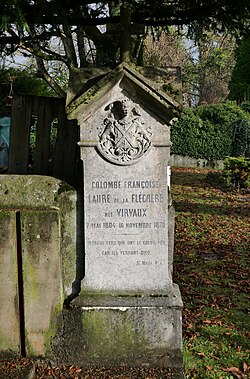
Swiss surnames are incredibly diversified, reflecting the country's distinct linguistic and regional boundaries. Switzerland has four official languages: German, French, Italian, and Romansh, and each region has acquired unique onomastic traditions impacted by geography, religion, and cross-border influences. In addition, these surnames can be found in the Swiss diaspora, also known as also referred to as "fifth Switzerland" (German: Fünfte Schweiz, Italian: Quinta Svizzera, French: Cinquième Suisse, Romansh: Tschintgavla Svizra), and traditional destinations of Swiss emigrants, like Midwest of the United States (Indiana, Illinois, Wisconsin) and on the Pacific Coast, with some also settling in Pennsylvania, North Carolina and South Carolina as well as countries like Argentina, Chile, and smaller communities in Canada, Australia and New Zealand. There are more than half a million different Swiss surnames.[1]
Research your ancestors on MyHeritage
Swiss surnames naming conventionsSwiss surnames naming conventions

Swiss naming rules allow for numerous given names, but only the first is commonly used in speech. Double surnames are permissible for married couples, but children acquire just one surname (either their father's or mother's). The Swiss registry system stabilized surnames fairly early thanks to municipal citizenship records (Heimatort), which still indicate family roots today.
Around two-third of Swiss surnames are derived from German, with popular examples being Müller (miller), Meier (mayor), Schmid (blacksmith), and Weber (weaver). Swiss-French surnames, which are carried by around a quarter of the total population include Rochat, Dubois, Martin, and Favre. These surnames are common in the Romandy, the French-speaking parts of Switzerland, including Geneva, Vaud, Neuchâtel, and Jura. Swiss French is comparable to French, however there are minor lexical differences affected by local languages. Swiss-Italian surnames, carried by around 8% of the total population of the country, include Bernasconi, Ferrari, Rossi, Bianchi, Fontana, Crivelli, Galli, Cattaneo, Colombo, and Cereghetti; many of these names are also common in Italy, demonstrating the close relationship between the two countries. Bernasconi is notably popular in Ticino, Switzerland's Italian-speaking canton. Romansh surnames are less common than names from the more populous German, French, and Italian-speaking regions; popular Romansh surnames include Accola, Caduff, Derungs, Alesch, and Spescha. Surnames can often reveal a person's region and language group; however and due to the multicultural and multilingual nature of the Swiss society, surnames are frequently altered between languages, which means that it is common to find a person with a French-Swiss given name and a German-Swiss surname, or vice-versa, like Alain Geiger, Johann Louis François Vogel, Mathéo Tuscher and Michael Theurillat; this phenomenon is slightly less common among Swiss Italians, but some notable cases are known, like Johann Heinrich Pestalozzi and Jacqueline de Quattro.
Types of Swiss surnamesTypes of Swiss surnames
Swiss surnames of toponymic originSwiss surnames of toponymic origin
- Bühler – from Bühl, “hill”
- Graber – “from a hollow” (Graben)
- Steiner – “from the stone” (Stein)
- Meierhofer – “from Meier's farm”
- Emmenegger – from the Emmen valley
- Genoud – from Geneva region
- Monod – “of the hill” or a diminutive of monde
- Bernasconi – “from Bernasco”
- Fontana – “fountain”
- Tuor – “tower” in Romansh
- Luganese - from Lugano
Swiss surnames of patronymic originSwiss surnames of patronymic origin

Especially in the French-speaking regions of Switzerland, many given names are also used as family names without any patronymic suffix:
- Fritz – diminutive of Friedrich
- Hug – from Hugo
- Götz - a form of Gottfried
- Tschopp – unique Swiss form of Joseph
- Kunz – from Konrad
- Perrin – from Pierre (Peter)
- Jaccard – French Swiss variation of Jacques
- Maissen – from Mathias, Romansh form
- Bürgi - son of Burg
- Michel - like many French-Swiss given names who became surnames
- Pedroni – from Pietro (Peter)
Swiss surnames of descriptive originSwiss surnames of descriptive origin

Many Swiss surnames associated with personal or physical traits are of religious origin, like Croisier and Clément:
- Arnold – from Germanic arn-wald, “eagle-power”
- Grosjean – “Big John”
- Chevalley – from “little horse”
- Rochat – “little rock”
- Aubert – “bright noble” from Germanic roots
- Clément – “merciful”
- Colombo – “dove”
- Gut - "good"
- Croisier – “cross-bearer,” religious origin
- Monn – Romansh for “mountain”
- Maillard – from maillot, child’s shirt (nickname)
- La Fléchère - "the Arrow"
- Streit - "quarrel", "dispute"
Swiss surnames of occupational originSwiss surnames of occupational origin
Swiss surnames of aristocratic originSwiss surnames of aristocratic origin
While Switzerland never had a classical aristocracy with hereditary titles such as kings or dukes, it did have prominent patrician families who wielded considerable authority in numerous towns and cantons. For generations, these families, many of whom were affluent and well-connected, held positions of influence in government, industry, and society.
Most common Swiss surnamesMost common Swiss surnames
Celebrities with Swiss surnamesCelebrities with Swiss surnames

- Roger Federer - Swiss tennis player, winner of 103 singles titles on the ATP Tour, including 20 major men's singles titles, among which eight Wimbledon and five US Open titles
- Lara Gut - Swiss alpine skier, winner of the gold medal in the super-G event at the 2022 Winter Olympics in Beijing and 48 World Cup victories across 3 disciplines
- Helen Keller- American author, political activist and lecturer; first deafblind person to earn a Bachelor of Arts degree
- Néstor Kirchner - Argentine politician who served as the president of Argentina from 2003 to 2007
- Angelica Kauffman - Swiss Neoclassical painter, one of two female painters among the founding members of the Royal Academy in London in 1768
- Charles-Édouard Jeanneret, best known as Le Corbusier - Swiss architectural designer, painter, urban planner and writer, who was one of the pioneers of what is now regarded as modern architecture.
- Ruth Dreifuss - Swiss economist, unionist and politician who served as a member of the Federal Council from 1993 to 2002; the first woman elected president of Switzerland
- Pirmin Zurbriggen - Swiss skier, winner of the World Cup title four times, an Olympic gold medal in 1988 in Downhill, and nine World Championships medals
See alsoSee also
- Switzerland
- German surnames
- British surnames
- Danish surnames
- Turkish surnames
- Polish surnames
- Afrikaans surnames
- Greek surnames
- Portuguese surnames
- Italian surnames
- Latvian surnames
- Lithuanian surnames
- Ashkenazi Jewish surnames
- Austrian surnames
- Alsatian surnames
- Indian surnames
- Silesian surnames
- Trentinian surnames
- Scottish surnames
- Welsh surnames
- Australian surnames
- Canadian surnames
- New Zealand surnames
- American surnames
- Irish surnames
- French surnames
- Dutch surnames
Explore more about Swiss surnamesExplore more about Swiss surnames
- Discover the origin of your Swiss surname at MyHeritage
- Switzerland - Collection Catalog at MyHeritage
- The “Forgotten” Immigrants: The Swiss to America webinar at Legacy Family Tree Webinars
- Tracing Your European Ancestors webinar at Legacy Family Tree Webinars
References
- ↑ 1.0 1.1 Last names. First and last names in Switzerland. Federal Statistical Office
- ↑ Most Common Last Names In Switzerland. Foreberars.io

